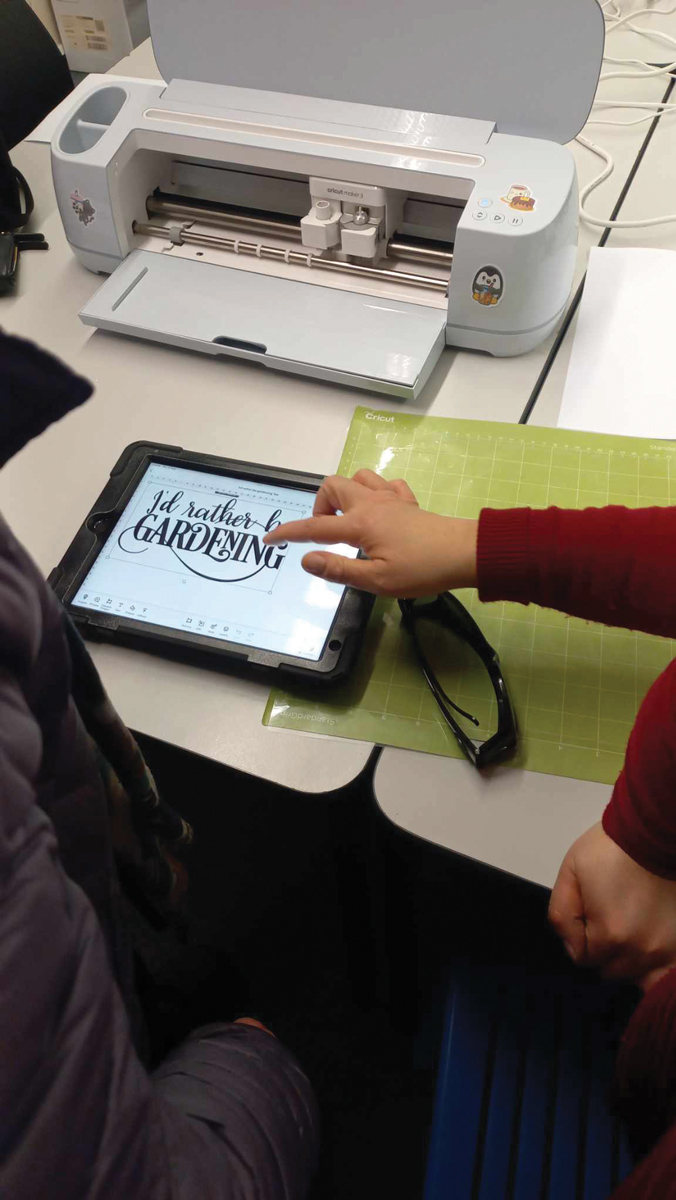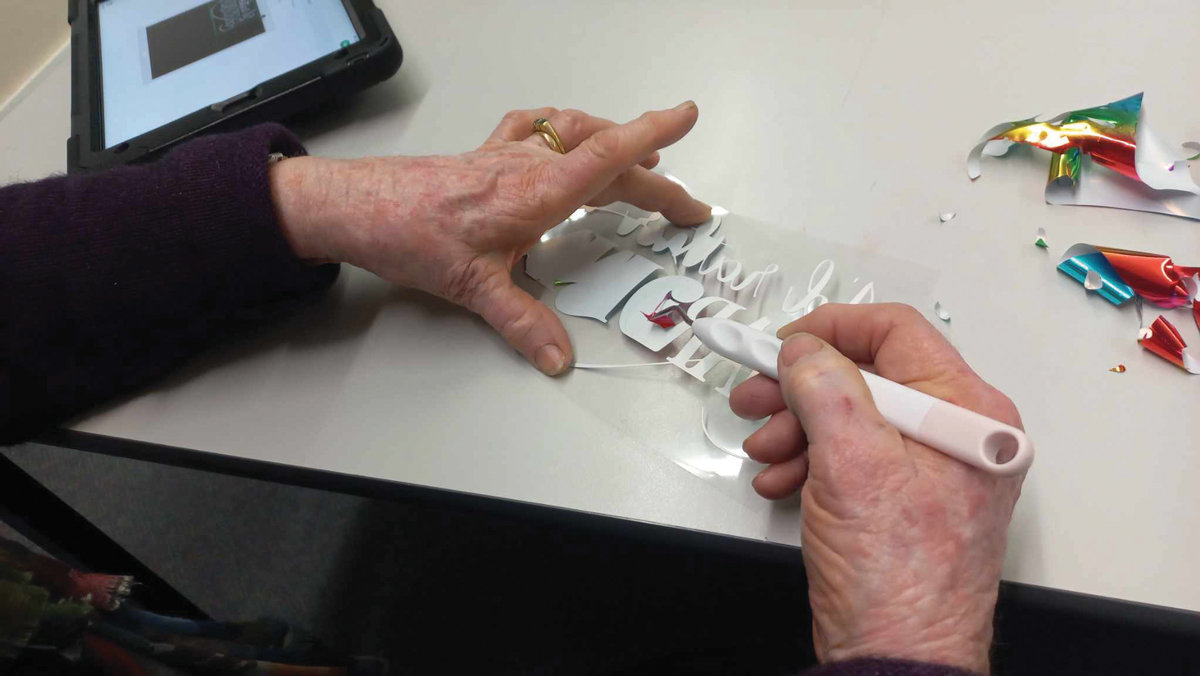
When Napier Libraries talk about Cricut, they don’t mean the ball game! The three Cricut machines owned by the libraries are integral to the Creation Station, the makerspace at Taradale Library where they run adult learning programmes. A Cricut is a cutting machine designed specifically for crafting, capable of cutting more than 300 different materials. They allow users to cut out all sorts of intricate, customised designs from sticky vinyl, paper, card, wood and more! The Cricuts are highly sought after tools, not only used by local crafters, but also by the librarians to deliver workshops, teaching how to use the machines and the software that comes with them.
 Taradale Library holds its adult learner classes twice a week with a range of skills on offer, including a Repair Café for mending clothes, such as missing buttons or tears and rips, basic sewing workshops, and using a 3D printer as well as use of the Cricut.
Taradale Library holds its adult learner classes twice a week with a range of skills on offer, including a Repair Café for mending clothes, such as missing buttons or tears and rips, basic sewing workshops, and using a 3D printer as well as use of the Cricut.
The Cricut machines, sewing machines and overlockers are expensive pieces of machinery and having them as part of the Creation Station gives people the opportunity to try them out, complete a one-off project, or learn a new skill without the cost of the equipment being a barrier to the learning experience.
Workshops host between three and six learners on each course with two tutors, which means learners have an intensive session with time dedicated to their individual needs, says Napier Library’s Holly Weston.
“We get a wide and diverse range of people attending our classes. Sessions can run from 30 minutes to an hour. We often have people coming in to have a look at the classes being run, interested in what we are doing. This is a great way for us to get new people to attend our workshops.”
The library also holds tech one-on-one sessions with 20-minute time slots where people can get help tailored to their individual needs. The 20-minute slot allows learners to get lessons in what they specifically would like to know without going into information overload. Beginners have found that this allows them to learn to use their devices in bite-sized chunks. They often go away and practise what they have learnt during the week, being very proud to show off their new skill and learn a new one in the next session.
The tech one-on-ones start with asking what the learner wants to use their phone for and where they would like to start. Holly says sessions have covered everything from how to turn your phone on and off, to how to download files on your phone and then where to find them, and how to customise device settings.
“We find out what our learners want to know and tailor the training to fit those needs. We also encourage them to go home and play with the phone with the knowledge that we can fix things that might go wrong, so they feel reassured and confident enough to really experiment. Learners come back the following week for a follow-up session where we can put anything right that might have gone awry as they figure things out by themselves.”
Napier Libraries has been running adult education for many years and has recently ramped up its programme. It now has five people in the Community Engagement Team who run the programming, each with their own specialities and who share their skills with other team members to bring them up to speed.
Learners come from broad and diverse backgrounds, with everyone from retirees to small business owners to those just wanting to learn new skills on the weekend.
“We really do get a broad range of learners. We keep our topics diverse and this attracts a growing pool of new learners,” Holly says.
 The team also creates community connections with businesses and local groups who are welcome to use the library spaces. More recently, local banks have run courses in the library reading lounge on many topics, including demystifying banking terms, how to spot a scam and what to do if you have fallen victim to one.
The team also creates community connections with businesses and local groups who are welcome to use the library spaces. More recently, local banks have run courses in the library reading lounge on many topics, including demystifying banking terms, how to spot a scam and what to do if you have fallen victim to one.
“Our success is due to the fact we are a library-based service. We are not a traditional learning environment and so people who may not have been in a classroom for a while, or who may have had a bad experience in the classroom, feel more comfortable with us. There’s lots going on in the library so it doesn’t feel as formal, which can take away some of the anxiety and pressure. We are a non-judgemental space, and we encourage our learners to have fun when they are in our space.”
